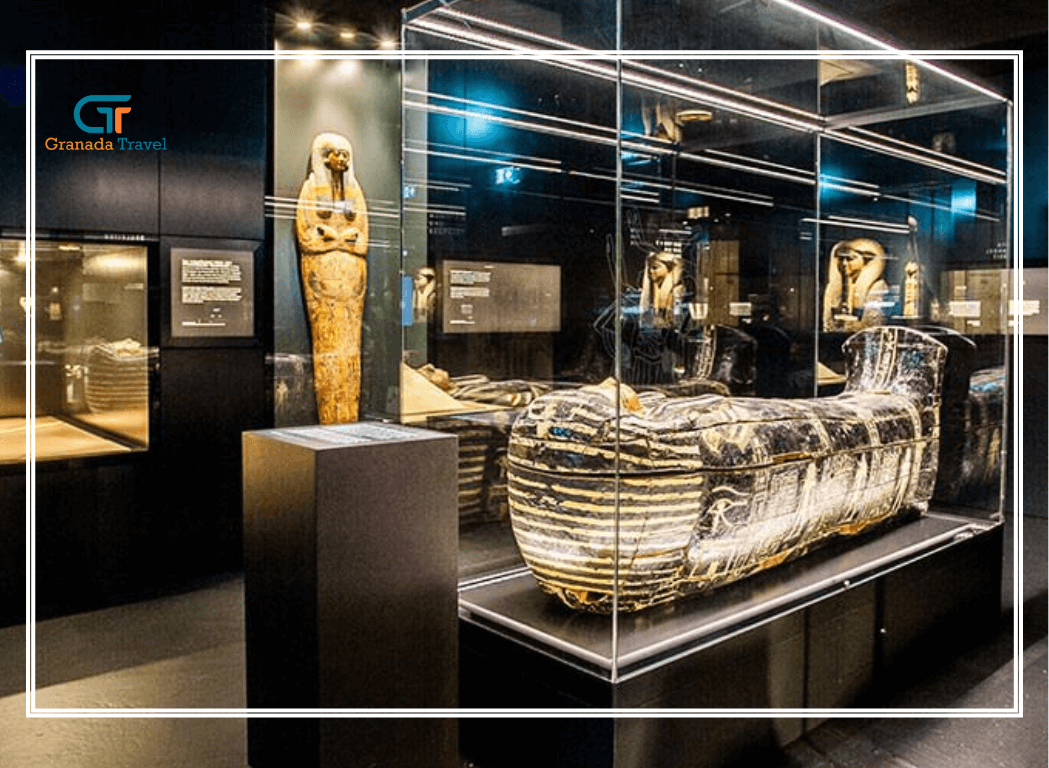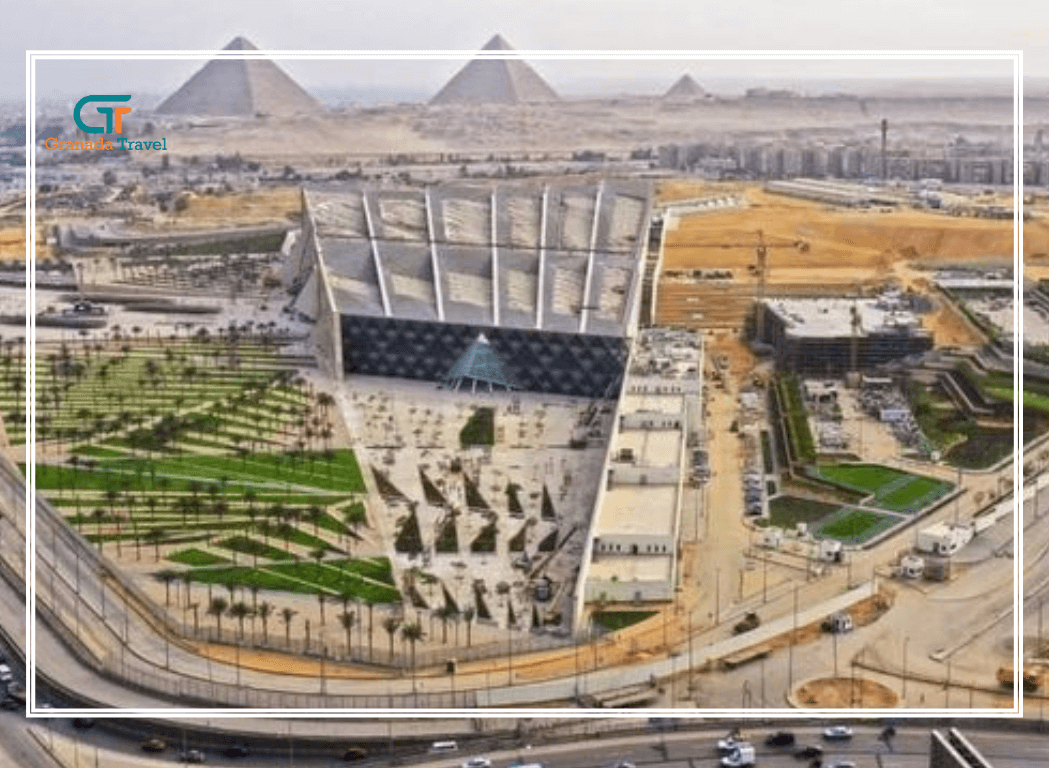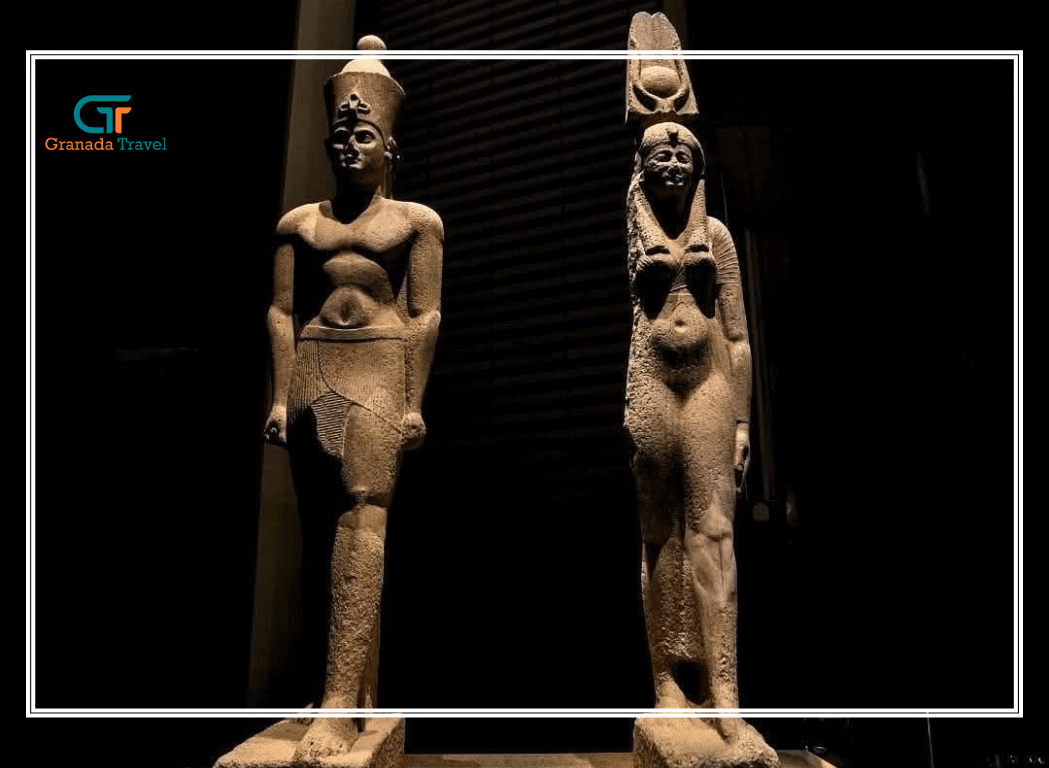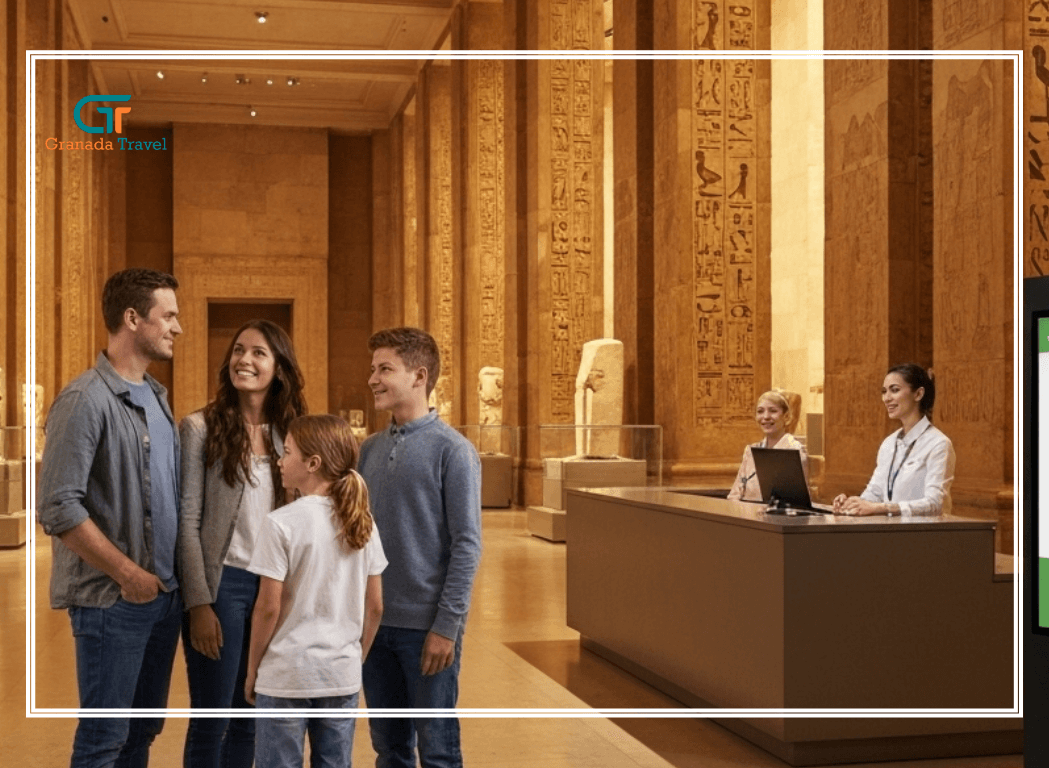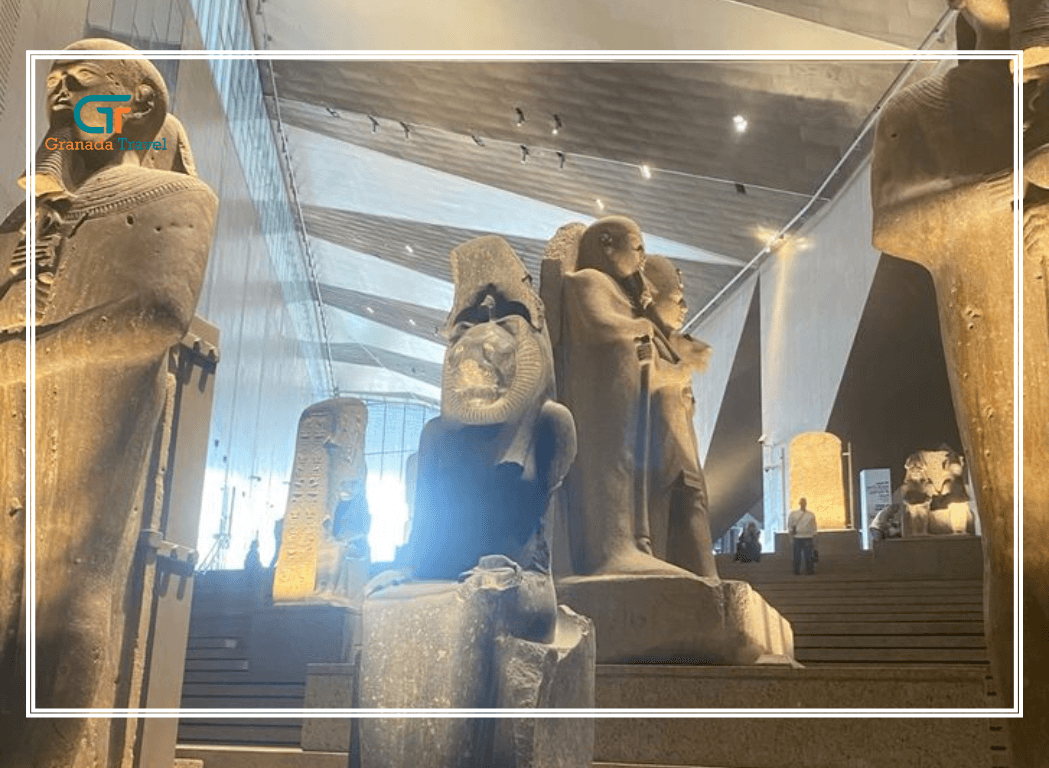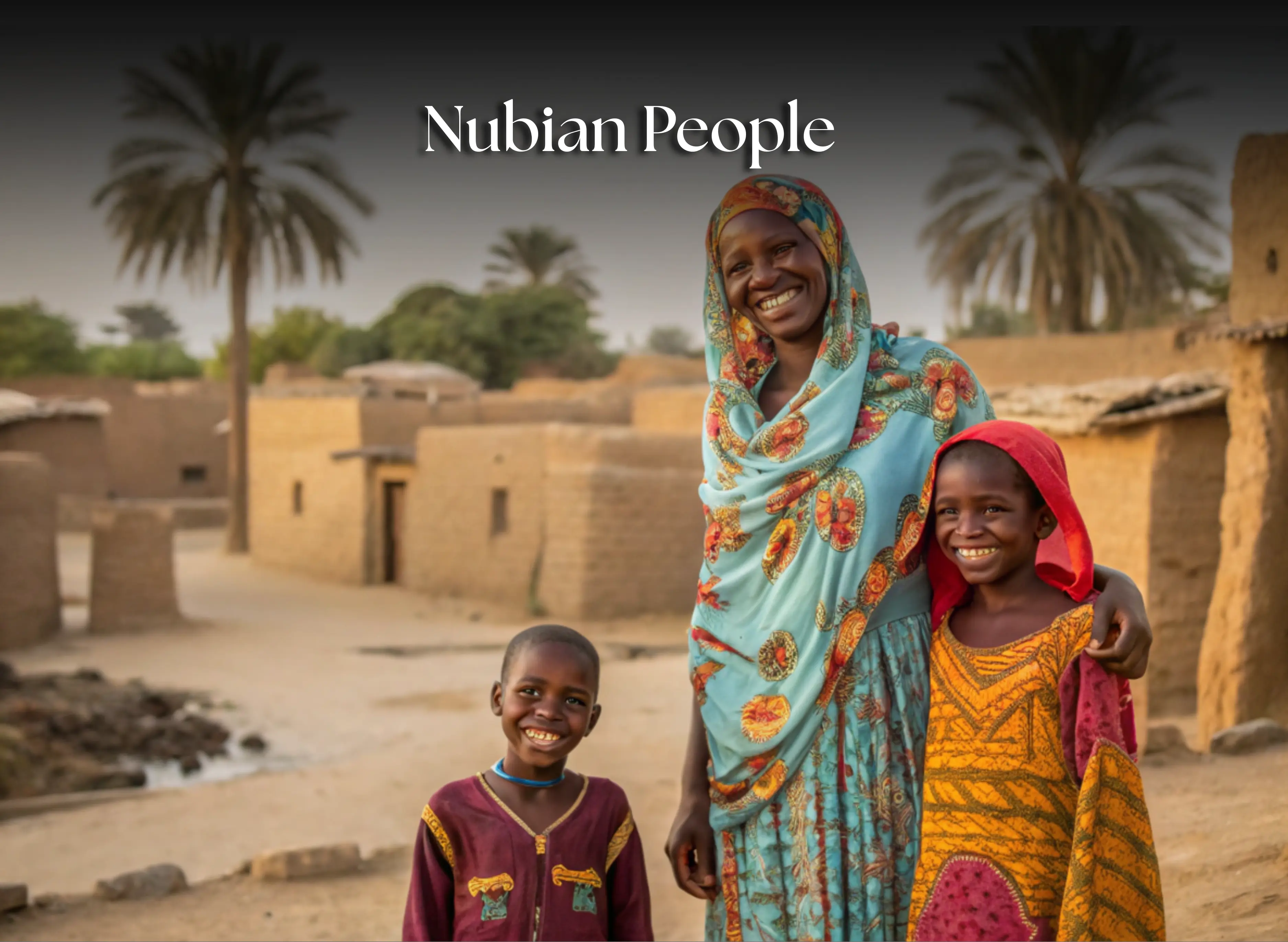
The Enduring Spirit: Exploring the Rich Heritage of the Nubian People
The sun beats down on the sands of Upper Egypt, the Nile flowing languidly, a constant witness to the ebb and flow of civilisations. Here, amidst the ancient monuments and the vibrant hues of modern life, resides a people with a history as deep and captivating as the river itself: the Nubian people. This blog delves into the fascinating world of the Nubian people, exploring their ancient roots, their enduring culture, and their presence as the nubian people of Egypt today.
For centuries, the Nubian people have called the lands along the Nile, stretching from southern Egypt into northern Sudan, their home. Their story is intertwined with that of ancient Egypt, a narrative of trade, cultural exchange, and at times, conflict. Understanding the nubian people of Egypt requires acknowledging their distinct identity, one that predates and exists alongside the broader Egyptian context. The people of Aswan, in particular, have a strong connection to this heritage, their lives often reflecting the enduring traditions of their Nubian ancestors. Indeed, when one speaks of aswan egypt people or simply aswan people, the rich tapestry of Nubian influence is often subtly woven into the fabric of their daily lives.
Echoes of a Glorious Past: Ancient Nubia
To truly appreciate the nubian people today, we must journey back in time and explore the legacy of the ancient nubian people. Their history is not merely an addendum to that of Egypt; it is a vibrant and independent narrative of powerful kingdoms, skilled artisans, and a unique cultural identity. The ancient nubian people established sophisticated civilisations, including the Kingdom of Kush, which at one point even ruled Egypt itself. Their achievements in architecture, metallurgy, and governance rivalled those of their northern neighbours.
Evidence of This Glorious Past Can Still Be Seen Today
The nubian temples, often relocated due to the construction of the Aswan High Dam, stand as silent testaments to their architectural prowess and religious beliefs. Philae Temple, for instance, while exhibiting Ptolemaic and Roman influences, holds echoes of earlier Nubian reverence for the divine. Exploring these sites offers a tangible link to the ancient nubian history and provides a glimpse into the sophisticated ancient nubian culture.
The relationship between ancient Egypt and ancient Nubia was complex. There were periods of cooperation and trade, where goods like gold, ivory, and ebony flowed along the Nile. There were also times of conflict, as both powers sought to control the resources and territories of the region. Despite these interactions, the ancient nubian people maintained their distinct cultural identity, their own languages, and their unique customs. Archaeological discoveries continue to shed light on the richness and complexity of ancient nubian culture, revealing a society with its own artistic styles, burial practices, and religious beliefs.
The Nubian People in Egypt Today: Resilience and Identity
Despite the passage of time and the significant changes that the region has undergone, the nubian people in egypt have steadfastly preserved their cultural heritage. Their distinct languages (primarily Kenzi and Dongolawi), their vibrant traditions, and their strong sense of community remain integral to their identity. Visiting a nubian village aswan offers a captivating glimpse into this living culture. The brightly coloured houses, adorned with intricate patterns and often featuring scenes from Nubian life, stand in stark contrast to the more muted tones of other Egyptian architecture. The warmth and hospitality of the nubian people are immediately apparent, offering visitors a genuine connection to their unique way of life.
However, the story of the Egyptian nubian people in recent history is also one of displacement and resilience. The construction of the Aswan High Dam in the 1960s led to the flooding of a significant portion of their ancestral lands, forcing the relocation of thousands of Nubian families. This traumatic event, while bringing benefits to Egypt as a whole, had a profound impact on the nubian people, disrupting their traditional way of life and severing their direct connection to their ancestral homes.
Despite these challenges, the nubian people today have shown remarkable resilience. They have adapted to their new environments while fiercely maintaining their cultural identity. Efforts to preserve their languages, traditions, and cultural heritage continue through community initiatives, cultural centres, and the work of dedicated individuals. The nubian museum aswan plays a crucial role in this, showcasing the rich history and cultural heritage of Nubia, from its ancient roots to the present day. It serves as a vital resource for both the Nubian community and visitors seeking to understand their story.
Aswan: A Nexus of Nubian Culture
The city of aswan egypt serves as a significant centre for the nubian people in egypt. While Nubian communities can be found elsewhere in Egypt, Aswan and its surrounding areas are where their presence is most strongly felt. The vibrant markets of Aswan often feature Nubian crafts, from intricately woven baskets to colourful textiles. The warmth and hospitality of the Aswan Egypt people often reflect the strong community spirit that is a hallmark of Nubian culture.
Understanding the aswan weather, typically hot and dry, provides a backdrop to appreciating the traditional Nubian architecture, designed to provide respite from the heat. The thick mud-brick walls and high ceilings of Nubian houses are well-suited to the climate.
The nubian village aswan experiences offer a more immersive understanding of their way of life. These villages, often located on islands in the Nile or along its banks, showcase the unique architecture, the vibrant colours, and the strong sense of community that characterises Nubian culture. Engaging with the aswan people in these settings provides invaluable insights into their traditions, their music, and their perspectives on their history and future.
The Enduring Legacy
The story of the nubian people is a testament to the enduring power of culture and identity. From the majestic kingdoms of the ancient nubian people to the vibrant communities of the nubian people today, their heritage continues to enrich the cultural landscape of Egypt. Their resilience in the face of displacement, their commitment to preserving their traditions, and their unique perspective offer valuable lessons in a world often characterised by homogeneity.
Exploring the history and culture of the nubian people of Egypt is not just about looking at the past; it is about understanding a vibrant and dynamic community that continues to shape the present. Visiting aswan egypt, exploring the nubian temples, and engaging with the aswan people offers a unique opportunity to witness this enduring spirit firsthand. The echoes of ancient nubian history resonate in the daily lives of the egyptian nubian people, a powerful reminder of a legacy that continues to thrive along the banks of the Nile.
The nubian people, with their rich ancient nubian culture and their enduring presence as the nubian people in egypt, stand as a vital thread in the intricate tapestry of Egyptian society. Their story, from the powerful kingdoms of the ancient nubian people to the resilient communities of the nubian people today, deserves to be heard and celebrated. The warmth and vibrancy encountered in a nubian village aswan, the historical insights gained at the nubian museum aswan, and the welcoming spirit of the aswan egypt people all contribute to a deeper appreciation of this remarkable culture. The legacy of the nubian people along the Nile is a powerful reminder of the enduring strength of human identity in the face of change.
[cta-actions]

